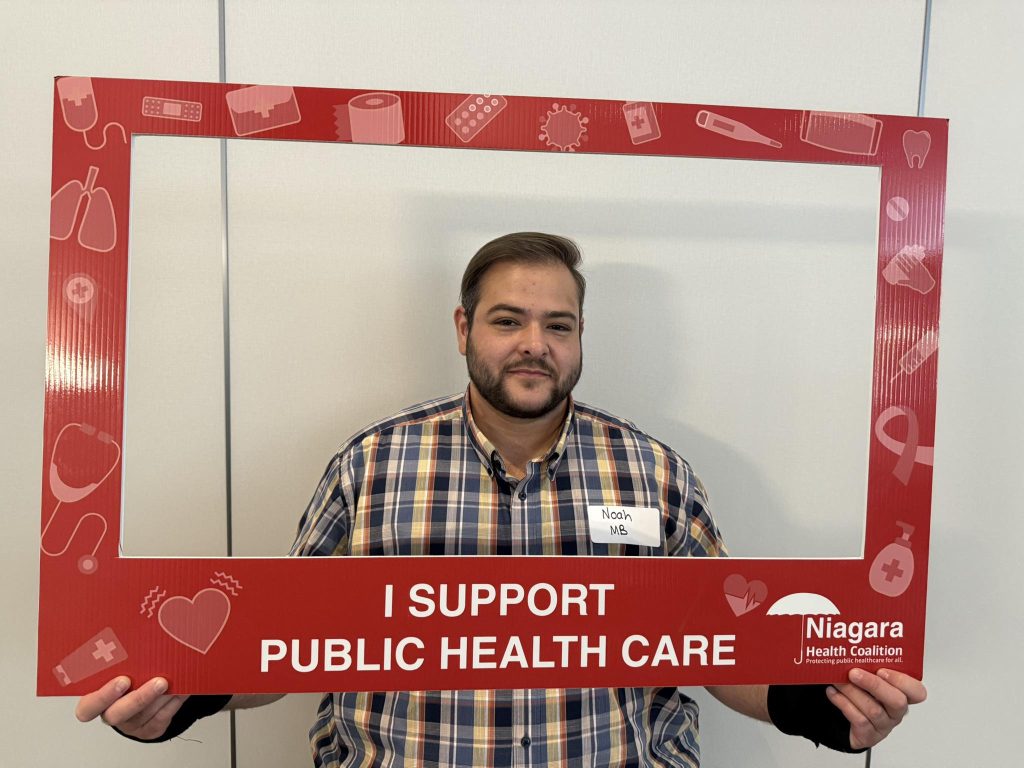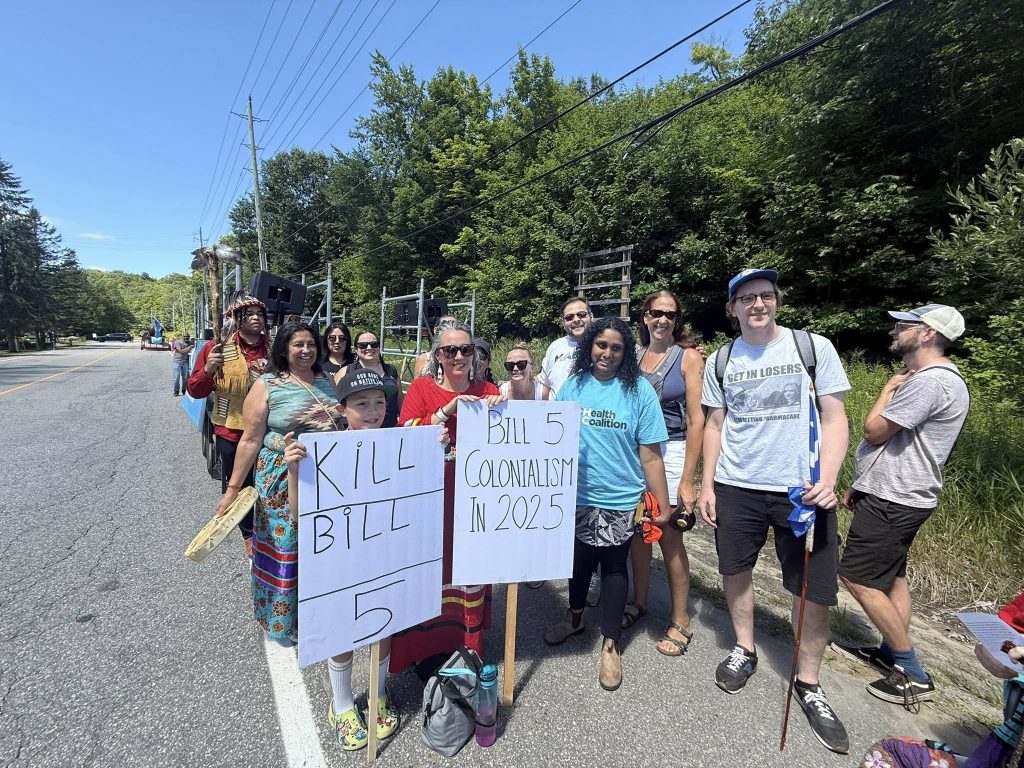
Last week I had the opportunity to travel to Huntsville, Ontario, to attend a series of actions organized by our fellow Health Coalitions in support of public health care. A Shadow Summit and set of rallies were organized by health care advocates to coincide with the meeting of all provincial and territorial leaders at this year’s Council of the Federation in Ontario’s cottage country.
On Monday, July 21, I attended and participated in a daylong series of workshops entitled “Code Red: A People’s Summit to Save Public Health Care.”
Here, health care workers and advocates from across the country met to share advocacy strategies and learn from one another about what is happening on the ground in our different regions of the country. We discussed federal and provincial health legislation and policy and how our movements are responding.

In the opening plenary, I joined with other provincial directors and leaders from the Canadian Health Coalition to provide an update on key health issues in Manitoba and heard from the audience about their own priorities and concerns about the state of public health care. Throughout my time in Huntsville, I met with lab technologists, nurses, paramedics, health coalition volunteers, policy experts, doctors, union leaders, harm reduction advocates, and many others passionate about defending and expanding public health care across Canada.
In my second panel of the day, I spoke about private agency staffing in Manitoba and learned more about the status of for-profit agency staffing in Ontario, Quebec, and New Brunswick. This was a great opportunity to learn about lobbying and advocacy strategies being advanced across the country and to share with the audience about the costs and dangers of private agency staffing use in Manitoba.
Combatting agency staffing and the further creep of privatization is crucial to MHC’s agenda of defending our public health care system, and so this was an especially important topic to speak on and learn more about. While some efforts are currently being made by our current government to limit reliance on agency nurses in particular, Manitoba can learn much from the strategy underway to eliminate for-profit agency staffing for all health care workers in Quebec. In Quebec, a province normally well known for its high levels of health care privatization, legislation (Bill 10) has been passed that aims to eliminate agency staffing by 2026. If Quebec can do this, so can Manitoba.
The fight to eliminate reliance on costly, for-profit agency staffing must be system-wide. As important as eliminating private agency nursing is, we must seek to take the profit motive out of all forms of health care delivery. This means focusing on ending the practice of relying on for-profit agencies for all health care workers and bringing work that has been contracted out back into the public system.
Currently, Manitoba spends millions of public health care dollars every year to pay private agencies to send nurses, health care aides, home care workers, paramedics, and other health care workers to work in rural and northern communities facing acute staffing shortages. These agencies cost the government far more than hiring for the same roles through the public system. Not only is this approach to staffing the public system more costly, it is also worse for patients to rely on agency staff with varying degrees of experience and training instead of permanent, full-time and fully trained nurses or other public health care workers.
Bringing in agency staff from outside local communities to work on short-term contracts also provides less benefit to these rural and remote economies. By improving local educational opportunities and recruiting full-time, permanent staff with good-paying jobs in health care, investment in the public health care system can help patients and inject dollars into the border economy across rural and northern Manitoba at the same time.

After a day of workshops and relationship building, on July 22 we took the fight for public health care directly to the premiers and prime minister with a series of rallies and a car cavalcade outside the Council of the Federation meetings.

Here, we stood in defense of public health care as an ongoing priority for Canadians across the country and reminded our federal and provincial leaders that they have received no mandate from voters to cut health care. Even as much of the political focus was on Trump and combatting the ill effects of chaotic US trade policy, we were there in numbers to emphasize how important health care is to Canadians and to the Canadian economy. As one of our largest non-trading industries, protecting jobs in health care and investing in our collective well-being through adequate, forward-looking health care policy and funding makes economic sense.
Investing in a robust, modernized public health care system is also the right and ethical thing to do. As Wab Kinew himself emphasized in remarks made at the Council of the Federation, universal health care is a fundamental Canadian value. If Canada wants to avoid becoming the 51st state, rallying around our unique and valued social programs, with universal health care chief among them, is crucial.

I am thrilled to have been able to meet with so many wonderful, passionate Canadians who share the Manitoba Health Coalition’s vision of an enduring and ever-improving public health care system here at home and across Canada. All Canadians deserve access to high-quality public health care, regardless of where they live or how much money they make, and together we can build a Canada where that is a reality for all of us. Thank you to all Coalition members who supported this trip and made this work possible.
